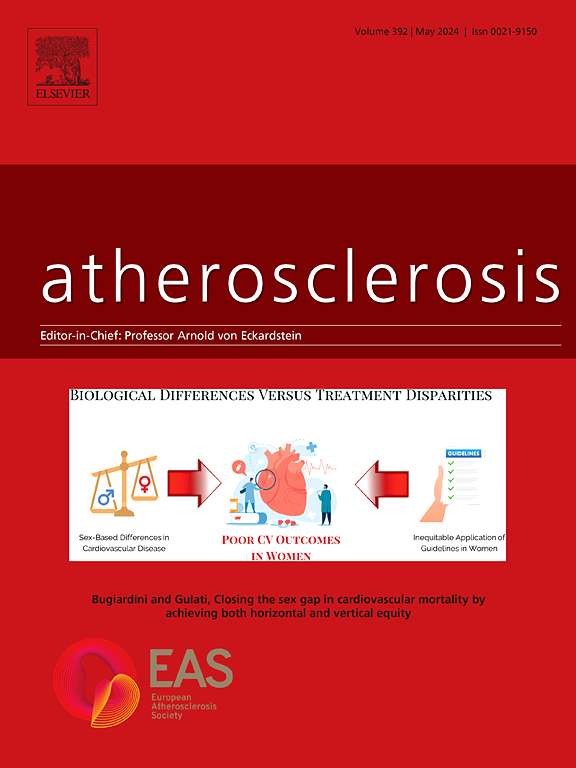Epigenetic regulation of vascular smooth muscle cell phenotypes in atherosclerosis
IF 4.9
2区 医学
Q1 CARDIAC & CARDIOVASCULAR SYSTEMS
引用次数: 0
Abstract
Vascular smooth muscle cells (VSMCs) in adult arteries maintain substantial phenotypic plasticity, which allows for the reversible cell state changes that enable vascular remodelling and homeostasis. In atherosclerosis, VSMCs dedifferentiate in response to lipid accumulation and inflammation, resulting in loss of their characteristic contractile state. Recent studies showed that individual, pre-existing VSMCs expand clonally and can acquire many different phenotypes in atherosclerotic lesions. The changes in gene expression underlying this phenotypic diversity are mediated by epigenetic modifications which affect transcription factor access and thereby gene expression dynamics. Additionally, epigenetic mechanisms can maintain cellular memory, potentially facilitating reversion to the contractile state. While technological advances have provided some insight, a comprehensive understanding of how VSMC phenotypes are governed in disease remains elusive. Here we review current literature in light of novel insight from studies at single-cell resolution. We also discuss how lessons from epigenetic studies of cellular regulation in other fields could help in translating the potential of targeting VSMC phenotype conversion into novel therapies in cardiovascular disease.

动脉粥样硬化中血管平滑肌细胞表型的表观遗传调控。
成人动脉中的血管平滑肌细胞(VSMCs)保持着大量的表型可塑性,这允许可逆的细胞状态改变,从而实现血管重构和体内平衡。在动脉粥样硬化中,VSMCs因脂质积累和炎症而去分化,导致其特征收缩状态的丧失。最近的研究表明,在动脉粥样硬化病变中,个体的、预先存在的VSMCs可以克隆扩增并获得许多不同的表型。这种表型多样性背后的基因表达变化是由表观遗传修饰介导的,表观遗传修饰影响转录因子的获取,从而影响基因表达动力学。此外,表观遗传机制可以维持细胞记忆,潜在地促进恢复到收缩状态。虽然技术进步提供了一些见解,但对VSMC表型如何在疾病中控制的全面理解仍然难以捉摸。在这里,我们回顾了当前的文献,从单细胞分辨率研究的新见解。我们还讨论了其他领域细胞调控的表观遗传学研究如何有助于将靶向VSMC表型转化的潜力转化为心血管疾病的新疗法。
本文章由计算机程序翻译,如有差异,请以英文原文为准。
求助全文
约1分钟内获得全文
求助全文
来源期刊

Atherosclerosis
医学-外周血管病
CiteScore
9.80
自引率
3.80%
发文量
1269
审稿时长
36 days
期刊介绍:
Atherosclerosis has an open access mirror journal Atherosclerosis: X, sharing the same aims and scope, editorial team, submission system and rigorous peer review.
Atherosclerosis brings together, from all sources, papers concerned with investigation on atherosclerosis, its risk factors and clinical manifestations. Atherosclerosis covers basic and translational, clinical and population research approaches to arterial and vascular biology and disease, as well as their risk factors including: disturbances of lipid and lipoprotein metabolism, diabetes and hypertension, thrombosis, and inflammation. The Editors are interested in original or review papers dealing with the pathogenesis, environmental, genetic and epigenetic basis, diagnosis or treatment of atherosclerosis and related diseases as well as their risk factors.
 求助内容:
求助内容: 应助结果提醒方式:
应助结果提醒方式:


